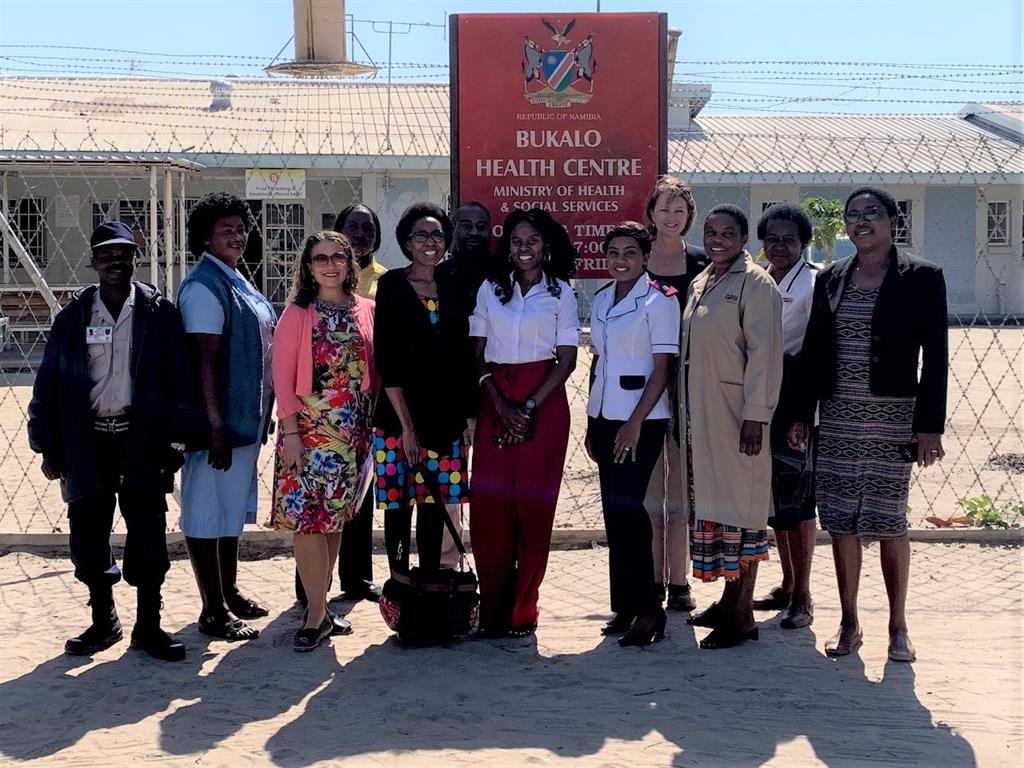Quashing cervical cancer through prevention
In an effort to reduce the incidence of cervical cancer the Cancer Association (CAN) and partners this week launched their national human papilloma virus (HPV) screening programme.
HPV is the primary cause of cervical cancer, which is the second most common form of cancer among women in Namibia.
In the last 10 years, Namibia has seen an increase of nearly 50% in deaths related to cervical cancer.
Nearly all cases of cervical cancer are caused by a virus called human papillomavirus (HPV).
HPV infection is common and most sexually active people will be infected with the virus during their lifetime.
However, cervical cancer is a particular risk for HIV-positive women. A woman who is HIV positive is at least five times more likely to be infected with persistent HPV. Cervical cancer is the growth of abnormal cells on the cervix of a woman and is fatal if not detected in time and treated appropriately.
However, cervical cancer is detectable, preventable and treatable because it is slow to develop.
It can be identified through regular screenings, and pre-cancerous growths can be treated, preventing the growths from becoming cancer in the future.
By implementing HPV testing in Namibia, CAN and its partners said they are paving the way for preventive methods of addressing cervical cancer.
CAN chief executive officer Rolf Hansen explained that molecular diagnostic HPV testing can augment screening for cervical cancer when used in conjunction with the traditional Pap smear.
He added that through DNA testing, the potential patient can be managed and treated more effectively, prior to cancer even developing in most cases.
CAN has negotiated a market access price for the HPV test kits with the health ministry, allowing HPV testing to be rolled out nationwide and to become accessible to all.
Work related to cervical cancer is also under way through the United States embassy in Windhoek, through the President's Emergency Plan for Aids Relief (PEPFAR) and with technical assistance from the US Centres for Disease Control and Prevention (CDC).
In August Pepfar equipped health facilities in Katima Mulilo and across Namibia with advanced techniques to detect and prevent cervical cancer.
STAFF REPORTER
HPV is the primary cause of cervical cancer, which is the second most common form of cancer among women in Namibia.
In the last 10 years, Namibia has seen an increase of nearly 50% in deaths related to cervical cancer.
Nearly all cases of cervical cancer are caused by a virus called human papillomavirus (HPV).
HPV infection is common and most sexually active people will be infected with the virus during their lifetime.
However, cervical cancer is a particular risk for HIV-positive women. A woman who is HIV positive is at least five times more likely to be infected with persistent HPV. Cervical cancer is the growth of abnormal cells on the cervix of a woman and is fatal if not detected in time and treated appropriately.
However, cervical cancer is detectable, preventable and treatable because it is slow to develop.
It can be identified through regular screenings, and pre-cancerous growths can be treated, preventing the growths from becoming cancer in the future.
By implementing HPV testing in Namibia, CAN and its partners said they are paving the way for preventive methods of addressing cervical cancer.
CAN chief executive officer Rolf Hansen explained that molecular diagnostic HPV testing can augment screening for cervical cancer when used in conjunction with the traditional Pap smear.
He added that through DNA testing, the potential patient can be managed and treated more effectively, prior to cancer even developing in most cases.
CAN has negotiated a market access price for the HPV test kits with the health ministry, allowing HPV testing to be rolled out nationwide and to become accessible to all.
Work related to cervical cancer is also under way through the United States embassy in Windhoek, through the President's Emergency Plan for Aids Relief (PEPFAR) and with technical assistance from the US Centres for Disease Control and Prevention (CDC).
In August Pepfar equipped health facilities in Katima Mulilo and across Namibia with advanced techniques to detect and prevent cervical cancer.
STAFF REPORTER





Comments
Namibian Sun
No comments have been left on this article